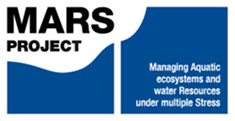Storyline - Fragmented World
In the Fragmented World we envision a future with rising emissions and significant climatic change (Representative Concentration Pathway 8.5). Technological developments are slow, and fossil fuel dependence is high; international cooperation is poor and significant pockets of poverty persist (Shared Socio-Economic Pathway 3). The Fragmented World storyline features a future world with the following features:
Economy
In the Fragmented World, the economy grows in some European countries (particularly in Northern and Western Europe) and decreases in others (primarily the South). Security concerns have led many countries to limit trade and focus on their internal economies and national, rather than international, development. There are few international trade agreements. Economic growth is slow, as is technological innovation, and industry is very resource intensive, with high dependence on fossil fuels. Inequality is rife, particularly in poorer countries, where resources are scarce.
Energy
Energy use is high in the Fragmented World,and largely dependent on fossil fuels. Barriers to trade mean the international energy markets are complex, and energy security is a priority for most states. Poor international cooperation and knowledge transfer means technological development and energy efficiency are low, and industry and power generation are resource intensive. There is investment in developing renewable energy, but this only happens when sufficient financial resources are available and there are no cheaper alternatives.
Environment
Environmental protection is not a priority in the Fragmented World. Some national governments implement local scale solutions to environmental problems, but the lack of international cohesion means that large-scale and trans-boundary problems are rarely addressed. Many currently existing habitats are lost, and deforestation, soil erosion and desertification increase in vulnerable areas.
Poor technological progress means and the low priority of the environment means that pesticide use increases, and as a result, water pollution and nutrient load increases in freshwater ecosystems. Water resources are overexploited, and the ecosystem health of freshwater systems is ignored. Poor technological and economic development, coupled with weak international institutions, mean that climate change mitigation is difficult. Unfortunately, poverty, uneven development and a lack of international cooperation mean that adaptation to climate change is also difficult.
Policies
Current environmental commitments are not met in a Fragmented World future. European environmental policies expire or are broken before 2030, and are not renewed. Each state plans its own policies in isolation. The majority of these policies favour economic development over environmental protection. Some local solutions are implemented in rich countries, but any diffuse environmental problems occurring over larger scales are neglected.
Water Management Strategies
In the Fragmented World, water management is not strategic. All interventions in freshwater are reactive, and respond only to limited short-term aims: that people in the present and immediate future have enough water to drink and to service agriculture and industry, and that areas with high levels of economic activity are protected against floods.
Further reading
MARS deliverable:
Faneca Sanchez, M. et al. (2015). Report on the MARS scenarios of future changes in drivers and pressures with respect to Europe’s water resources. Part 4 of MARS Deliverable 2.1: Four manuscripts on the multiple stressor framework. (Download report, 15mb)
Other websites:
SSP Database (Shared Socioeconomic Pathways) - Version 1.1 (External website)
IPCC Data Distribution Centre (External website)



